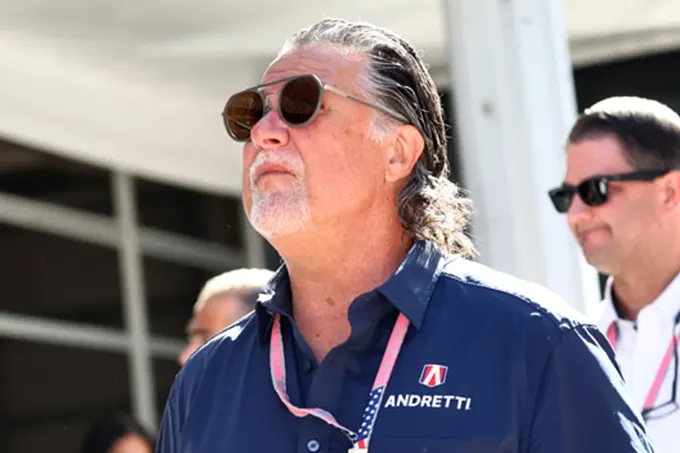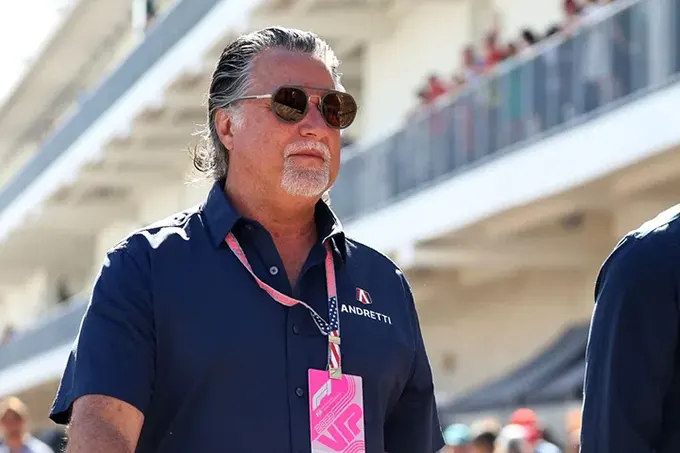European lawmakers question F1’s restrictive practices, pressuring Liberty Media to justify Andretti’s blocked entry amid cartel concerns.
The Andretti case continues to shake and unsettle Formula 1’s regulatory bodies, particularly the FOM.
Following scrutiny from the United States and the U.S. Congress, two European lawmakers are now questioning Liberty Media’s practices, which they deem restrictive. These MEPs are demanding clear responses and concrete measures to shed light on the situation arising from the FOM’s recent refusals to grant Andretti entry into F1.
Several months ago, even before the involvement of these MEPs, the European Court of Justice had already set a precedent, adjusting its stance on sports law—a shift we examined in detail—which challenges the FOM’s overt resistance to welcoming a new team.
The crux of the matter? EU anti-competition laws, which mandate that competition remains “free and undistorted” between Andretti and current teams, as it would in any significant market across Europe.
In its ruling, the ECJ underscored that neither UEFA nor potentially the FOM (albeit unnamed) should exploit their regulatory position in an anti-competitive manner to prevent new entrants. The court reminded that any sports regulator must ensure competition remains free and undistorted. Denying entry to a new player simply to preserve a larger share of revenues could indeed be challenged legally.
Furthermore, the ECJ emphasised that sports regulatory organisations must adhere to transparent, objective, and non-discriminatory criteria—factors on which Andretti, who has a robust application, might claim to have been unfairly disadvantaged.
Two EU Lawmakers Voice Doubts Over Andretti’s Rejection
Following judicial scrutiny, legislative concerns have now emerged as two European lawmakers increasingly question the decision to reject Andretti’s bid to join the F1 grid in 2026.
Belgian MEP Pascal Arimont, a member of the European People’s Party (centre-right), had previously submitted a formal inquiry to the European Commission regarding Liberty Media’s activities. He sought clarification on Liberty’s potential acquisition of MotoGP, raising questions about possible unlawful restrictions on competition within F1. Arimont also referenced Andretti’s attempt to join F1 in 2026, a bid denied by Liberty Media.
Now, a second MEP has approached the European Commission over the matter.
This time, German MEP Christine Anderson, representing the far-right AfD, has brought the issue to the fore. On 16 October 2024, she filed an official request with the European Commission, stating:
“The fact that the Formula One Group has rejected Andretti’s entry into Formula 1, despite FIA approval, could indicate a fundamental conflict of interest. Existing teams appear to form a de facto cartel, systematically excluding new competitors to protect their revenues and market values. This practice could significantly distort competition within the European motorsport industry.”
Why does this concern the EU? Primarily, most F1 teams are based in the UK, with several also headquartered in Italy. More importantly, the scale of the F1 market means it also impacts the EU’s internal market.
In any market, there must be free access, with no capacity to lock out entrants—a core principle of the European project.
The MEP draws the European Commission’s attention to the risk of F1 becoming less open and innovative by effectively becoming a closed club.
“The case of the Williams team highlights this issue well. Financial difficulties during the COVID-19 crisis forced the long-established family to sell, with the Williams family having to relinquish all their shares. The high valuation of teams due to market closure makes it nearly impossible for new entrants or private entrepreneurs, such as Eddie Jordan or Ross Brawn, to join F1 or take over existing teams.”
She then calls directly on the Commission to initiate an anti-competition investigation.
“This situation has direct implications for the internal market, given that numerous F1 teams are based in the EU.
- -In light of this problematic situation, how does the Commission assess cartel-like structures within F1, which impede new team entries and lead to a concentration of team ownership in the hands of major investors?
- -What measures does the Commission intend to take to ensure a fairer and more transparent process for new teams entering F1 and to support a broader range of team owners?”
- -Does the Commission intend to examine the impact of these entry barriers and the resulting market concentration on innovation, employment, and competitiveness within the motorsport and automotive sectors in the EU?”
Storm Clouds Gather for the FOM
So, what’s next? The Commission must provide its opinion within six weeks, determining whether or not to launch an investigation.
Such an investigation would add to one already underway in the United States, where the Department of Justice is examining whether F1 has indeed become a closed cartel.
At the same time, the repercussions of evolving ECJ jurisprudence will also need close monitoring.
The coming months will be crucial in determining whether Formula 1 remains an exclusive club or opens its doors to a new wave of competitors. A legal battle looms—one that could prove as intense as any battle on the track.
You may also like>
- Villeneuve: Hamilton Has Lost His Killer Instinct on Track
- Mercedes F1 shared Hamilton’s doubts of a ‘happy ending
- Indy 500 winner and McLaren advisor Gil de Ferran dies
- Also make sure you follow us on social media>Facebook and>Twitter

EU Probes F1: Is Liberty Media Running a Closed Cartel? EU Probes F1: Is Liberty Media Running a Closed Cartel?
